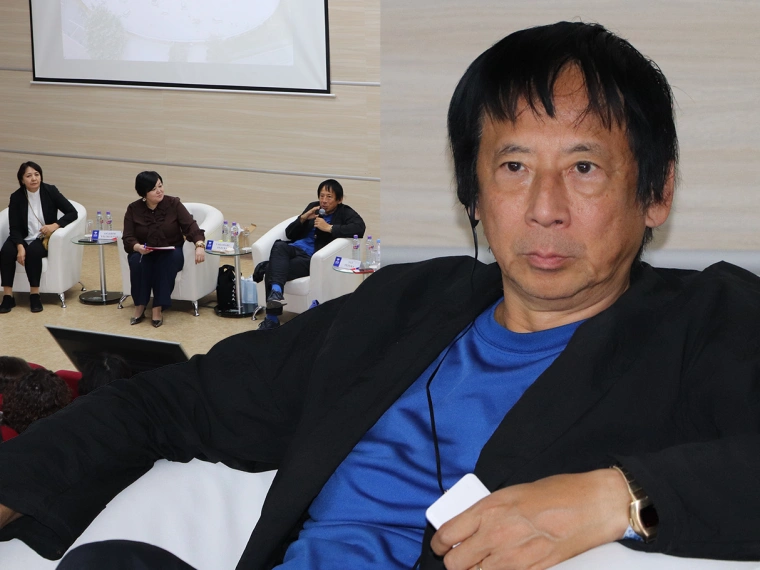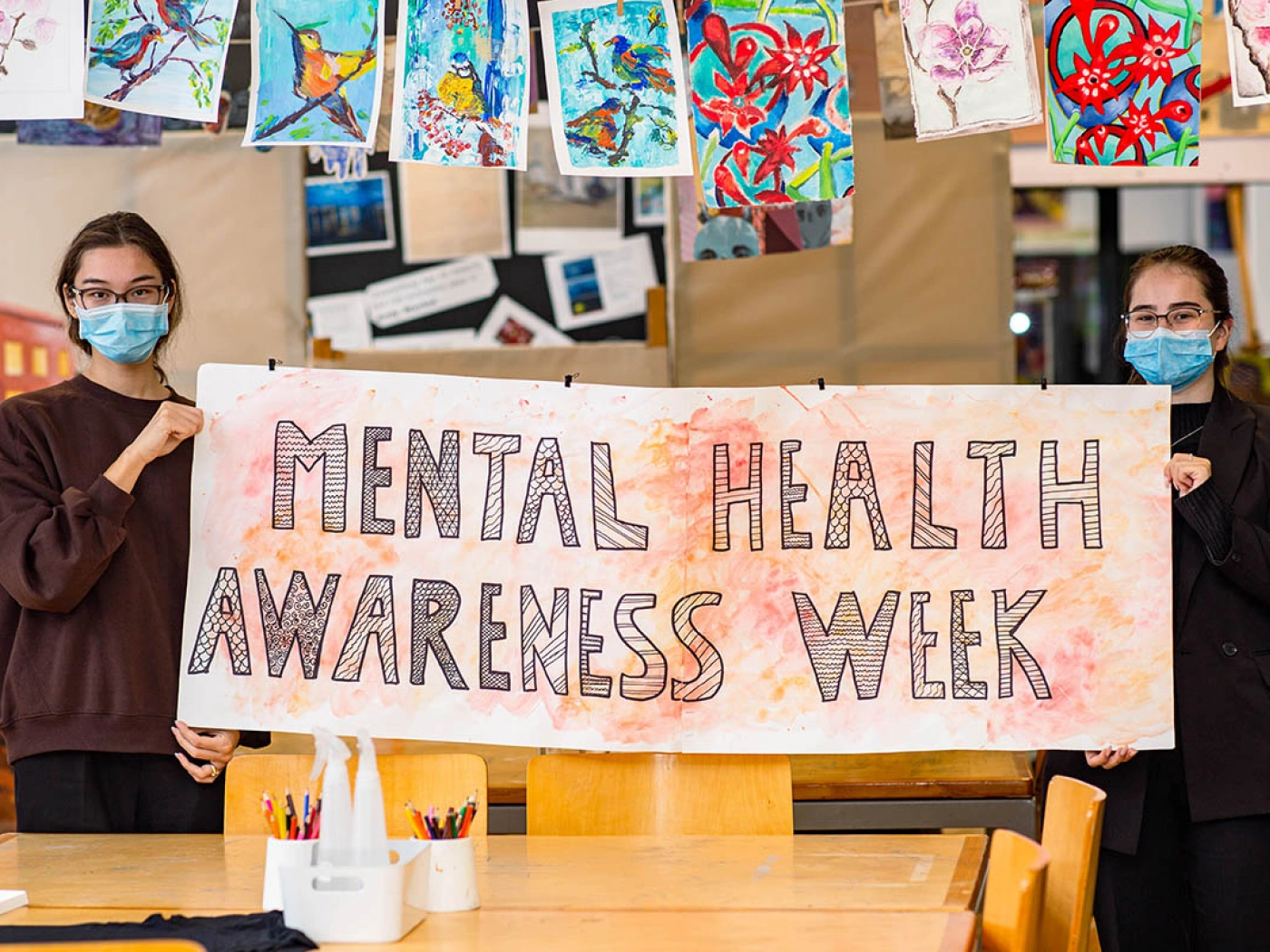
The impact of COVID-19 on children's mental health
The pandemic of COVID-19 has been the highlight of the news since February 2020. While most of us did not know whether we would spend almost two years indoors, people were still hopeful that the closure of workplaces, businesses and other institutions is temporary. Unfortunately, to this day, we can witness that the situation with coronavirus disease is not going anywhere.
If adults could at least comprehend the unfolding situation, for children, it was an abrupt and chaotic transition to distance learning that turned their world upside down. More than a billion learners were dropped from their usual routine. Instead of physically being in school, pupils were learning new topics online. Interactions with teachers, school administrators and peers had also shifted to digital format. In a couple of days, the lives of children in 143 countries were forced to study in a new environment, which was not necessarily ready for them.
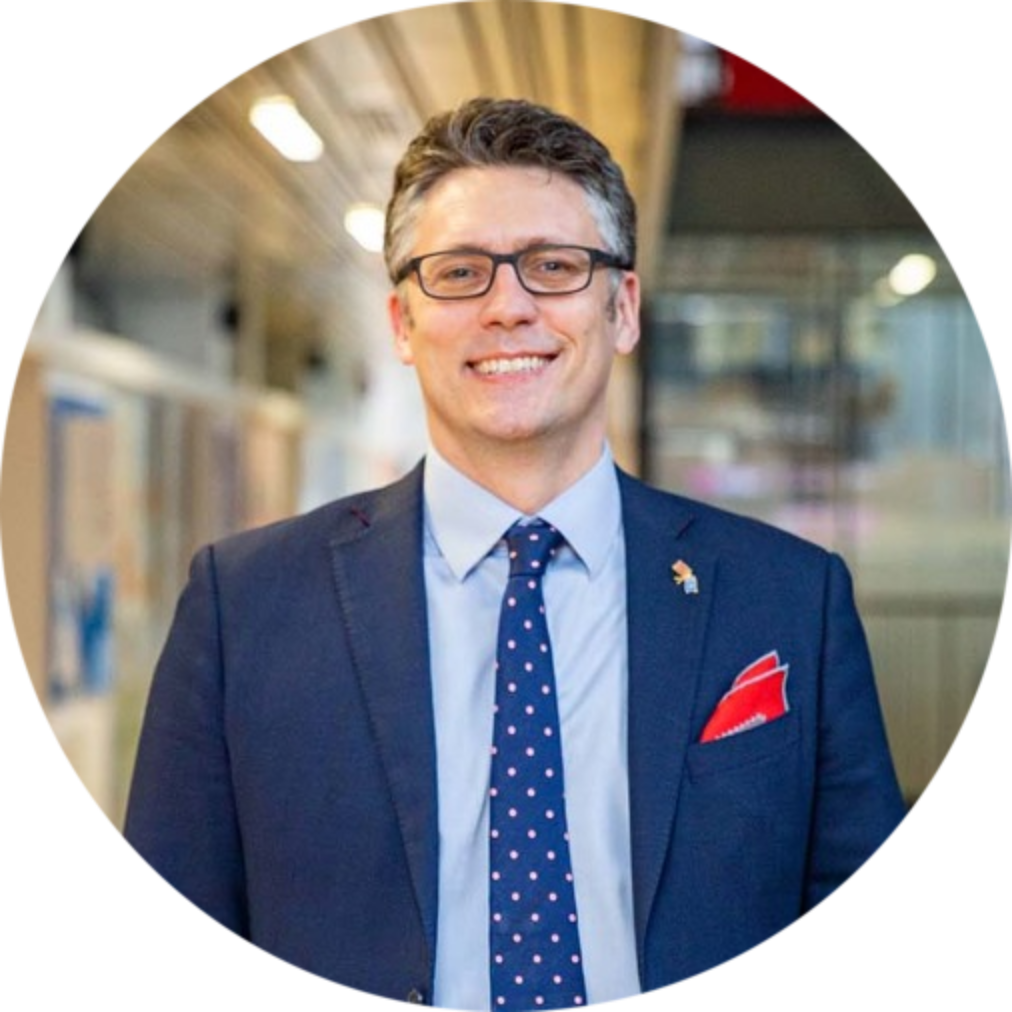 John Coles Haileybury Astana Director
John Coles Haileybury Astana DirectorAs a director, educator and parent, I had the opportunity to witness, analyze and reflect on experiences our pupils had endured during the extended school closure. Despite the fact, that some of the Year groups had returned to the school premises earlier than other ones, the implications that were imposed by the traumatic events caused by COVID-19 were clear. My colleagues and I saw it with our own eyes when pupils started coming back to school after winter break. Once on-site, they hesitated to answer questions during class time, even though they knew the answers. Like young deers, they stayed away from us, teachers, and from their classmates. As if it was unbeknownst to them how to behave in a social situation.
The well-being of our students has always been at the forefront of our ethos. Ensuring that our pupils excel academically while leading a balanced life is something every teacher wishes for their students to have. However, once the pandemic entered our lives, the scales of life have been outweighed by the anxiety, feelings of distress and uncertainty of the future. As a result, being trapped within four walls, the well-being of pupils has deteriorated and several stressors have contributed to that experience.
Prolonged screen time
During the lockdown, which took place in March 2020, parents became increasingly concerned about the time their children were online. Certainly, the usage of devices across the globe has grown due to the simple fact that most of the education was conducted virtually. Nevertheless, apart from studying in a new format, parents and educators picked up on the matter that pupils started spending more time on social media. Engaging on social media platforms is not an atrocious thing per se; yet, it is established that prolonged stay on social media can expose children to cyberbullying. Such experience can lead to stress, anxiety and low self-esteem.
Lack of physical activities
And while subjects, such as mathematics, history and languages could be taught in a digital environment, physical education is, unfortunately, not one of them. The implementation of social distancing, lockdown and other COVID-19 preventive measures impacted the physical health of the young generation. Usually, children engage in physical activities while playing outdoors. Nonetheless, with cases increasing exponentially, parents were less likely to let their offspring outside. Children, who were concerned about their health, could also prevent themselves from going outside.
Increased screen time, lack of organized sports and physical activities has led to a sedentary lifestyle, which, caused the prevalence of myopia. Considering the environment we were in, the resources we had, our Physical Education team devoted as much time as they could to ensure that our pupils participated in rigorous physical activities.
Family stressors
Disruption of daily life, social isolation and uncertainty of the future were not the only things that children faced during the lockdown period. Many countries found themselves in a predicament: the economic crisis people have experienced was as dreadful, as the disease itself. With many companies and businesses shutting down, the unemployment rate has spiked. Following changes in family members’ health and emotional states resulted in the disintegration of the youth’s wellbeing.
Similar to children, parents and caregivers started to work remotely. Many families faced unstable financial situations, where one or both parents could not provide enough for their families. On top of that, adults were placed in a vulnerable state as well. Schools closures, lack of social interaction, difficult financial situations and changes in offspring behavioural and emotional patterns supposedly took a toll on parents’ well-being. In times of crisis, young people tend to turn to authoritative figures for support. However, the pandemic was a unique setting, where mothers and fathers were not always emotionally supportive enough.
Delayed sleep
Removal from usual schedules ultimately led to the delayed sleep among children. A recent study found that the worsening of sleep quality and the loss of sleep is linked to depressive symptoms. Restrictions imposed by COVID-19 have had a prolonged impact on the welfare of people.
Sleep is essential for health, especially when it comes to children and adolescents. The well-being of pupils, their academic performance and physical health are associated directly with sleep patterns. An irregular sleep schedule may lead to a weakened immune system. People who experience typical markers of COVID-19 and its variants may have long-term effects of the virus.
Moreover, sleep deterioration may lead to increased susceptibility to mood and anxiety problems. Preteens and teenagers have already found themselves in vulnerable states: restrictions and regulations caused by the pandemic have also negatively affected their mental health.
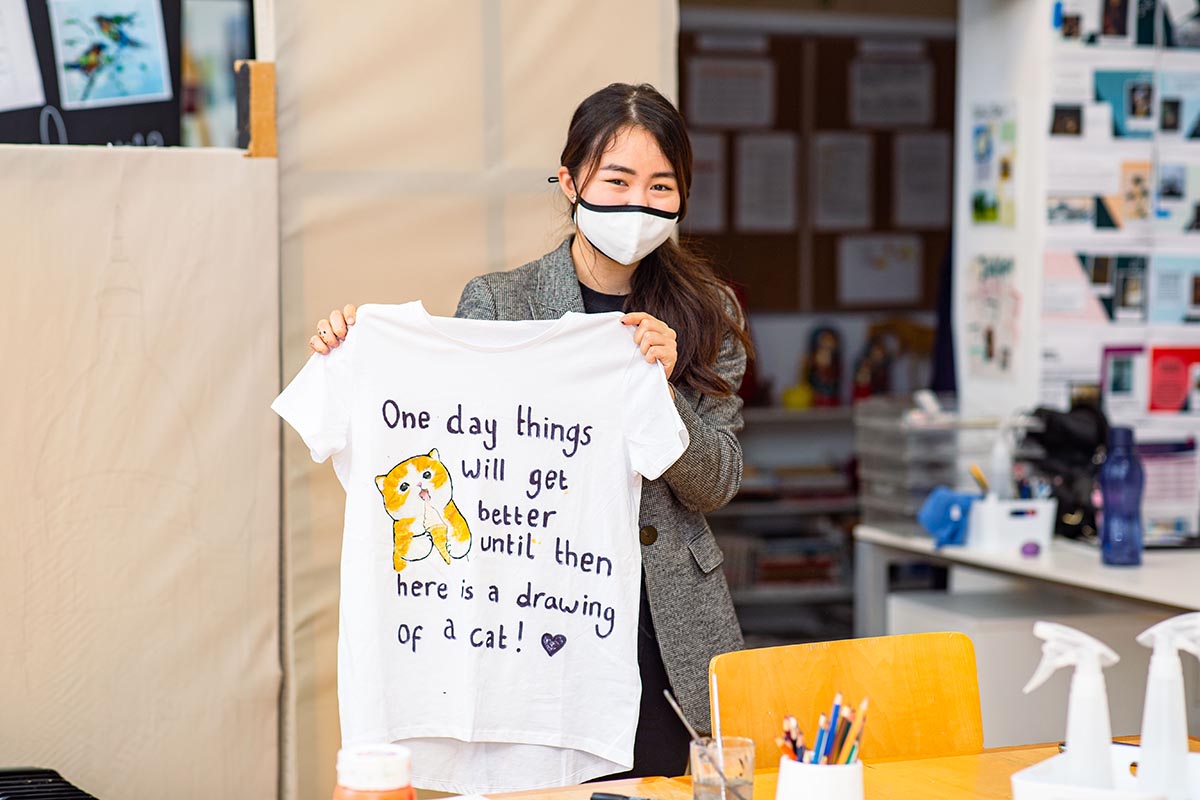
Unfortunately, it has been more than a year since the COVID-19 has entered our lives, and yet people have gradually picked themselves up during these dark times. The process of reopening borders is phased and cannot be rushed. Despite the fact that new variants of coronavirus are emerging, life goes on. However, all these cases could be inconsequential if we do not learn a crucial lesson here: schools are paramount in shaping and developing children and adolescents.
The role of schools has changed forever and mental well-being is now a major topic all schools need to address.
Schools around the world have addressed the issue of children’s suffering mental well-being in different ways, For example, Urban Promise Academy (UPA), a high school in Oakland, California, began offering therapeutic services through a partnership with the Wright Institute to address mental health issues. Although the school worked with a school counsellor, the therapy offered individualized and hands-on support designed for each student. Teachers were able to provide emotional support to students even when they were outside the school walls.
During the lockdown, we mainly focused on doing bodyweight and high-intensity exercises during lessons and encouraged children to continue this in their own time. Whilst studying online, children from the younger years tended to be more involved in physical activities/PE lessons whereas the older year groups didn’t get involved as much.
After being inspired by the example of schools in the UK, we decided to launch an Inside Out campaign during distance learning. And yet, it is much easier for children to turn to their classmates for help than potentially discussing the issue with parents, educators or caregivers. When the school announced the campaign launch, Year 12 students volunteered to become mentors for pupils in Year 7 and Year 9. Our older students had more time and resources to understand their emotional state and changes in behaviour, and they were kind enough to share that knowledge with younger pupils. The message of this initiative is how someone looks on the outside doesn’t necessarily reflect how they are truly feeling on the inside, so it is important to always be kind and think of others.
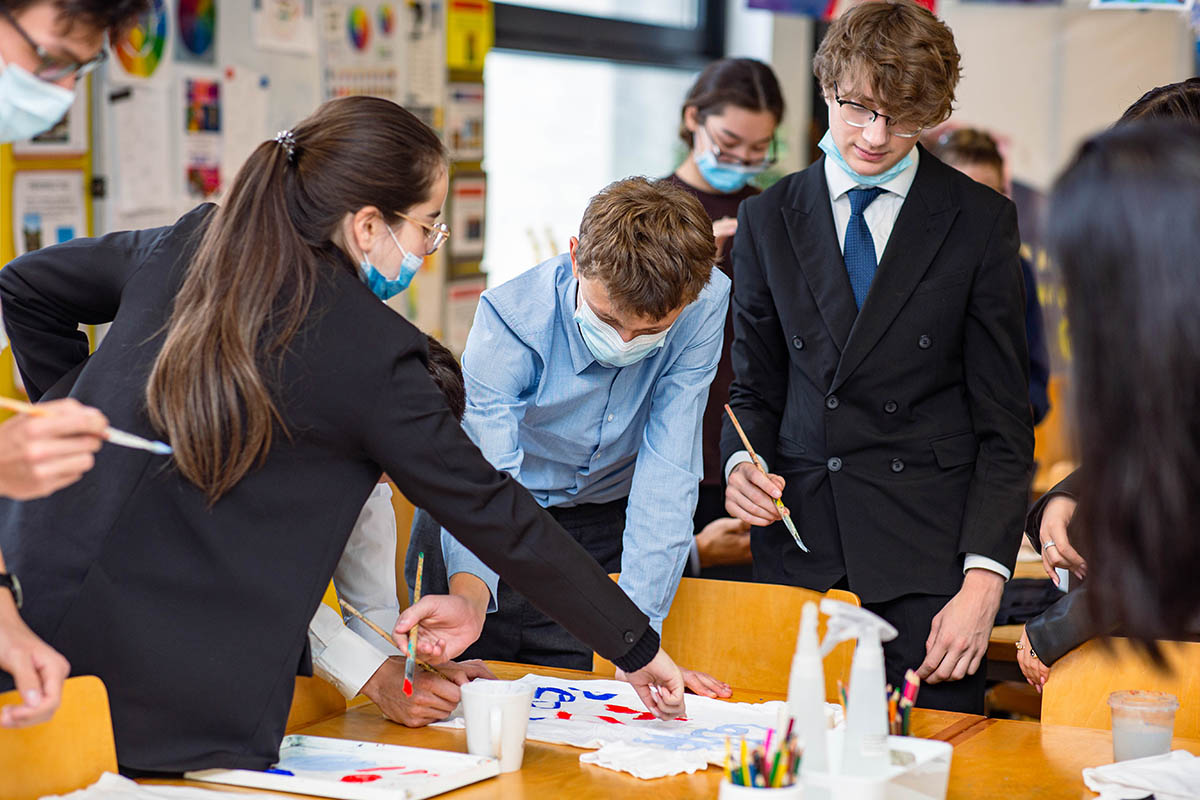
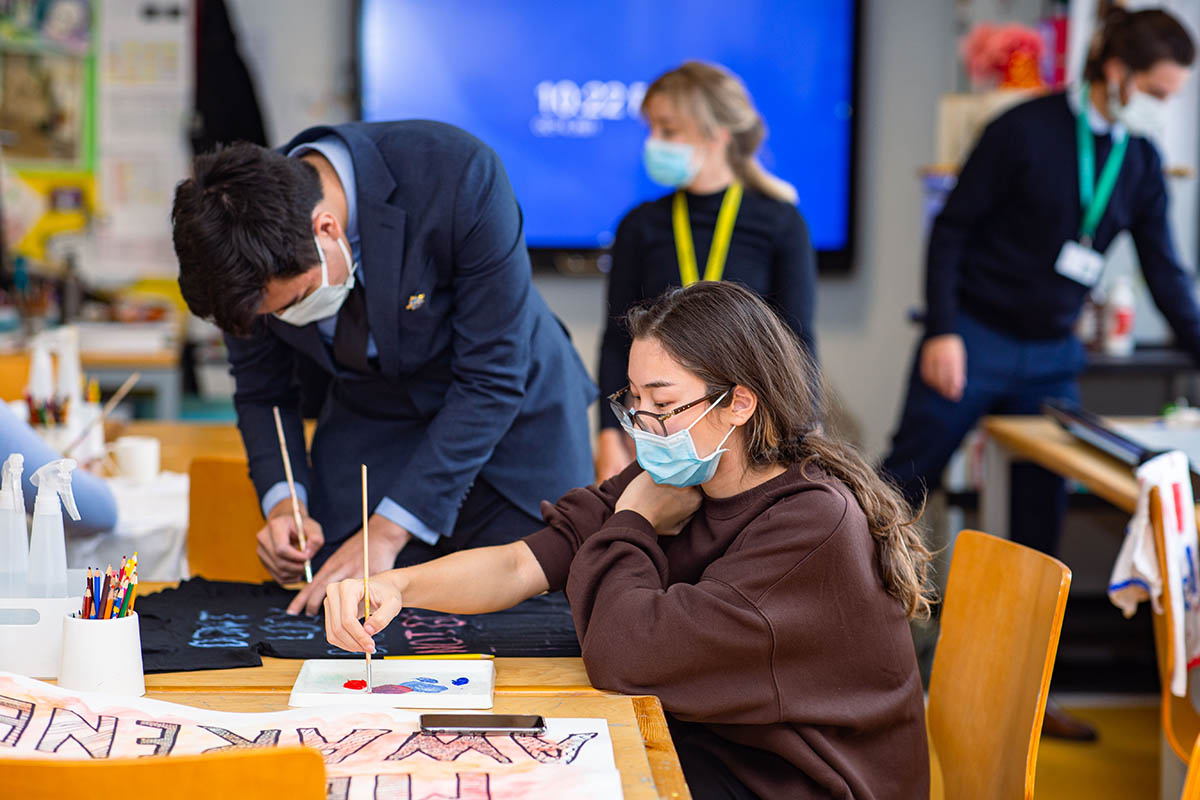
The strategy of vaccination that has been implemented boosts the immune system and is supposedly able to prevent the spread of the virus. Hopefully, global vaccination will gradually lift the COVID-19 restrictions, and the functioning of educational institutions will not be disrupted. There is no clear evidence that the pandemic will be over soon. However, we must be ready for every scenario.
Guidelines and training manuals can be developed for parents and caregivers to recognize unusual signs in the behaviour of children. These collaterals will help family members to provide emotional support. These handbooks are useful to implement in any situation, post COVID time as well.
If the same scenario will happen in the future again, the well-being support strategy should be secured in order to support pupils and teachers during the crisis time. When things are not going well, the ability to talk to someone outside the family can help children to reflect on the experience and get a clear understanding of the situation.
